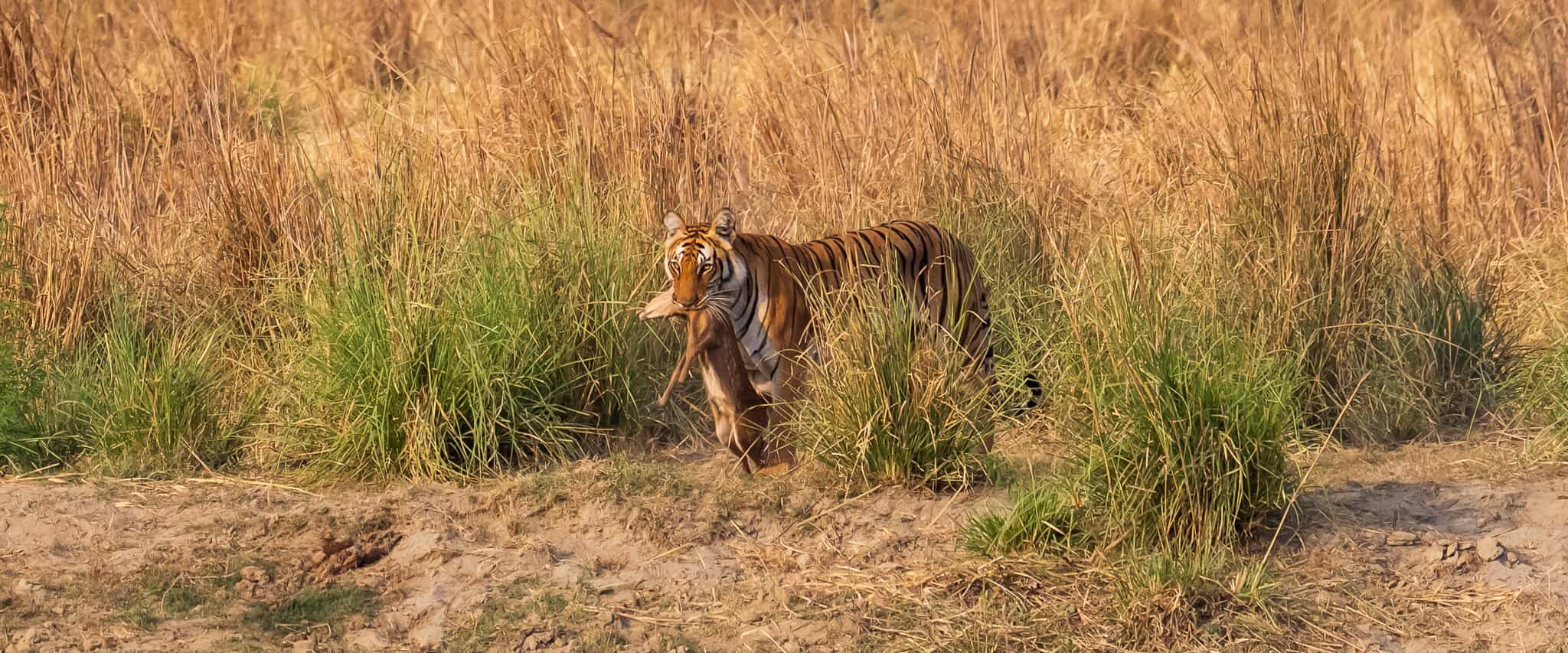Jim Corbett Tiger Reserve, nestled in the foothills of the Himalayas in Uttarakhand, is a paradise for wildlife lovers and nature enthusiasts. Established in 1936 as Hailey National Park, it is India’s oldest and most prestigious national parkand the birthplace of Project Tiger, launched in 1973. Spread across 1,318 sq. km, Corbett is home to the elusive Royal Bengal Tiger, a rich variety of flora and fauna, and an awe-inspiring landscape of dense forests, rivers, and grasslands.
Whether you seek an adrenaline-pumping tiger safari, a tranquil birding experience, or an overnight stay deep inside the jungle, Corbett offers it all. This blog will guide you through everything you need to know about Jim Corbett Tiger Reserve—its wildlife, safari zones, birding opportunities, best places to stay, and travel tips.
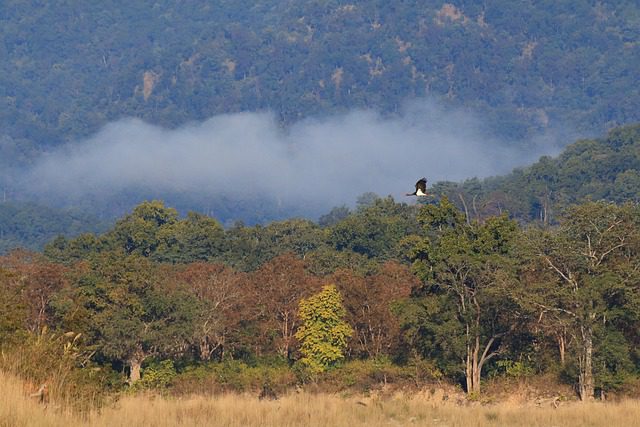
WILDLIFE & BIODIVERSITY OF CORBETT
The Royal Bengal Tiger and Other Mammals
Corbett is famous for its high tiger density, making it one of the best places in India to see a wild tiger. Apart from tigers, you may also spot:
- Leopards
- Asiatic Elephants
- Sloth Bears
- Yellow-throated Martens
- Otters along the Ramganga River
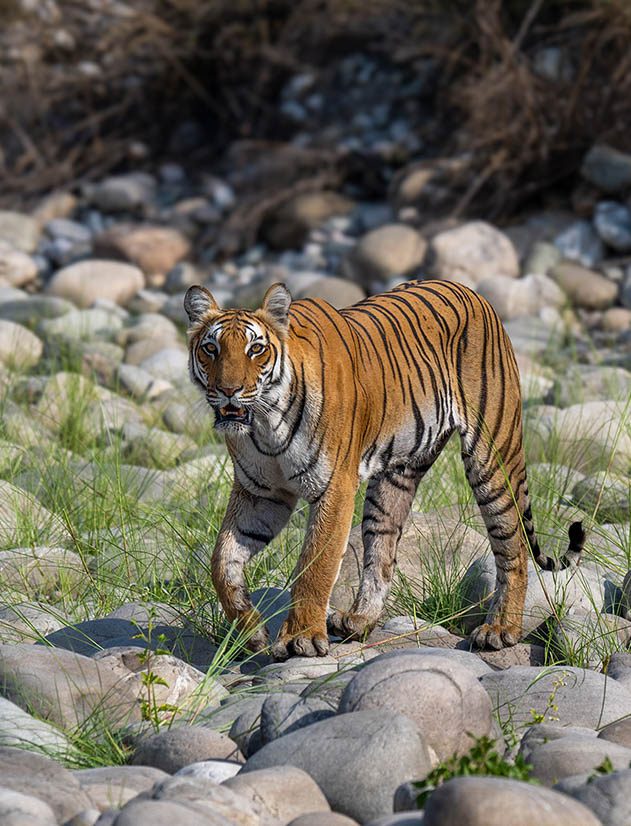
Birding in Corbett – A Paradise for Birdwatchers
With over 600 bird species, Corbett is a dream destination for bird lovers. Some of the top birds you can spot inside the park include:
- Pallas’s Fish Eagle
- Crested Serpent Eagle
- Wallcreeper
- Ibisbill
- Great Hornbill
Reptiles and Aquatic Life
The Ramganga and Kosi Rivers support a diverse aquatic ecosystem, home to gharial crocodiles, king cobras, and freshwater turtles.
SAFARI ZONES IN JIM CORBETT NATIONAL PARK
Jim Corbett is divided into several tourist zones, each offering a unique experience:
- Bijrani Zone – Lush forests and open grasslands, known for frequent tiger sightings.
- Jhirna Zone – Open year-round, great for spotting sloth bears, elephants, and deer.
- Dhela Zone – Rich in biodiversity and open throughout the year.
- Dhikala Zone – The largest zone, famous for tigers, elephants, and breathtaking landscapes.
- Durga Devi Zone – A birdwatcher’s paradise with rare Himalayan birds.
- Sitabani Buffer Zone – Not part of the core park but great for nature walks and bird photography.

SAFARI EXPERIENCE IN CORBETT
Jeep Safari
- Timings: Morning (6:30 AM – 9:30 AM) | Evening (2:30 PM – 5:30 PM)
- Best Zones: Dhikala, Bijrani, Jhirna
- Seats per Jeep: 6
Canter Safari (Dhikala Zone Only)
- Ideal for larger groups (16-seater).
Elephant Safari (Subject to availability)
- A unique way to explore the jungle without noise pollution.
BIRDING IN AND AROUND CORBETT – A DELIGHT FOR BIRD PHOTOGRAPHERS
Birding Inside Corbett – Rewarding Yet Challenging
Birding inside Corbett is an exciting but challenging experience because one cannot step out of the vehicle during safaris. However, some of the best birding zones inside the park include:
- Durga Devi Zone – Great for Pallas’s Fish Eagle, Crested Kingfisher, and Wallcreeper.
- Sitabani Zone – Home to Ibisbill, Long-tailed Broadbill, and Great Hornbill.

Birding Outside Corbett – Best Alternative for Bird Photographers
For photographers who want to walk, observe, and capture birds freely, several birding hotspots near Corbett are highly recommended:
- Pangot – Home to Cheer Pheasant, Koklass Pheasant, and Himalayan Rubythroat.
- Sattal (Must-Visit! Check out our Sattal Birding Tour for an amazing experience.)
- Known for Kalij Pheasant, Laughingthrushes, Thrushes, and Woodpeckers.
- Perfect lighting and easy accessibility.
- Manila – A hidden gem with Himalayan Woodpeckers, Long-tailed Minivets, and Sunbirds.
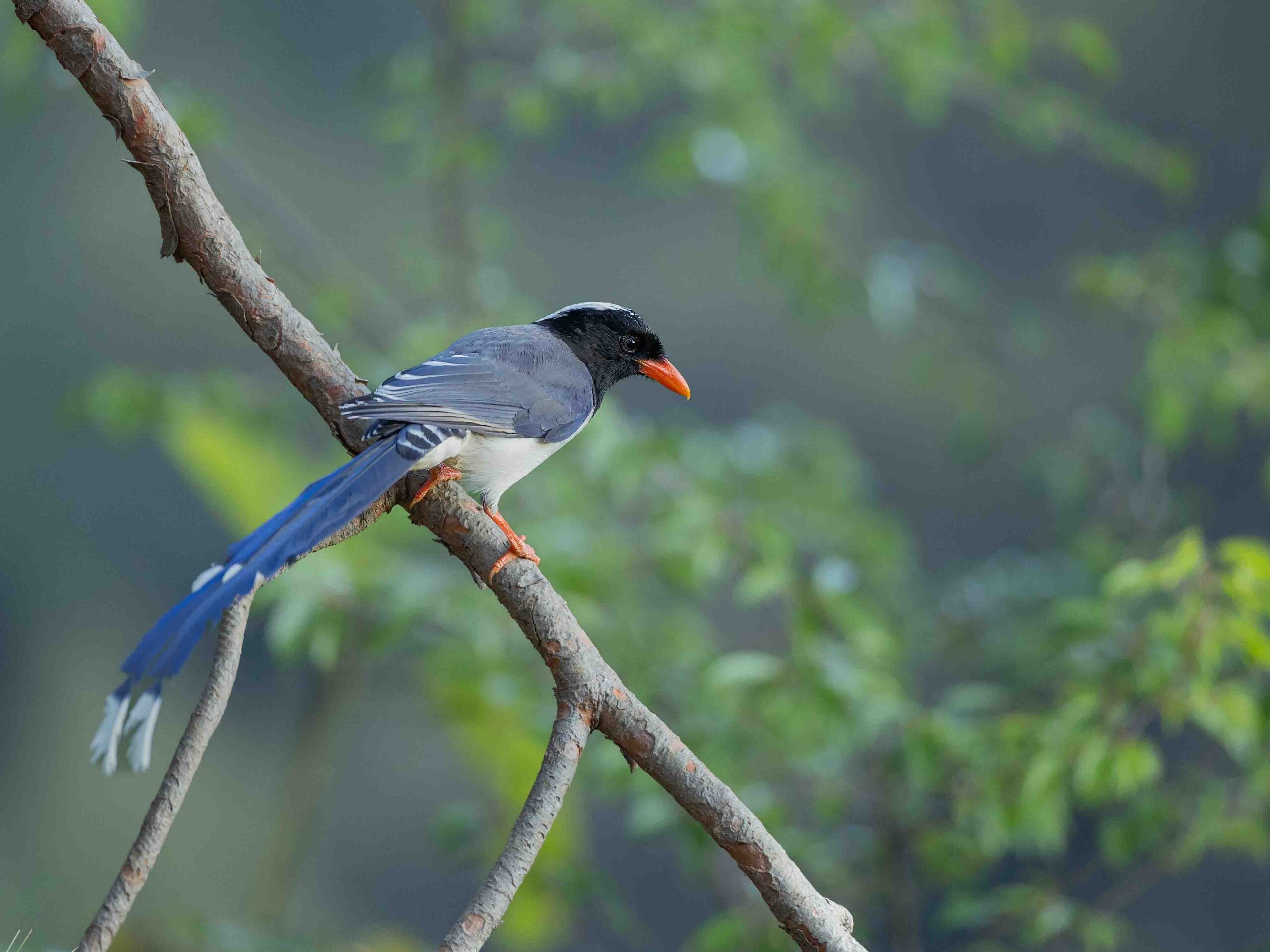
HOW TO REACH JIM CORBETT NATIONAL PARK
By Road
- Delhi to Corbett: 260 km (6 hours via NH9).
- Regular buses & taxis available from Delhi, Haldwani, Nainital.
By Rail
- Nearest Station: Ramnagar Railway Station.
- Direct trains from Delhi (Ranikhet Express, Corbett Link Express).
BEST TIME TO VISIT CORBETT
- Winter (Oct – Feb): Best for birdwatching & tiger tracking.
- Summer (Mar – June): High chances of tiger sightings.
- Monsoon (July – Sept): Green landscapes, but limited safaris.
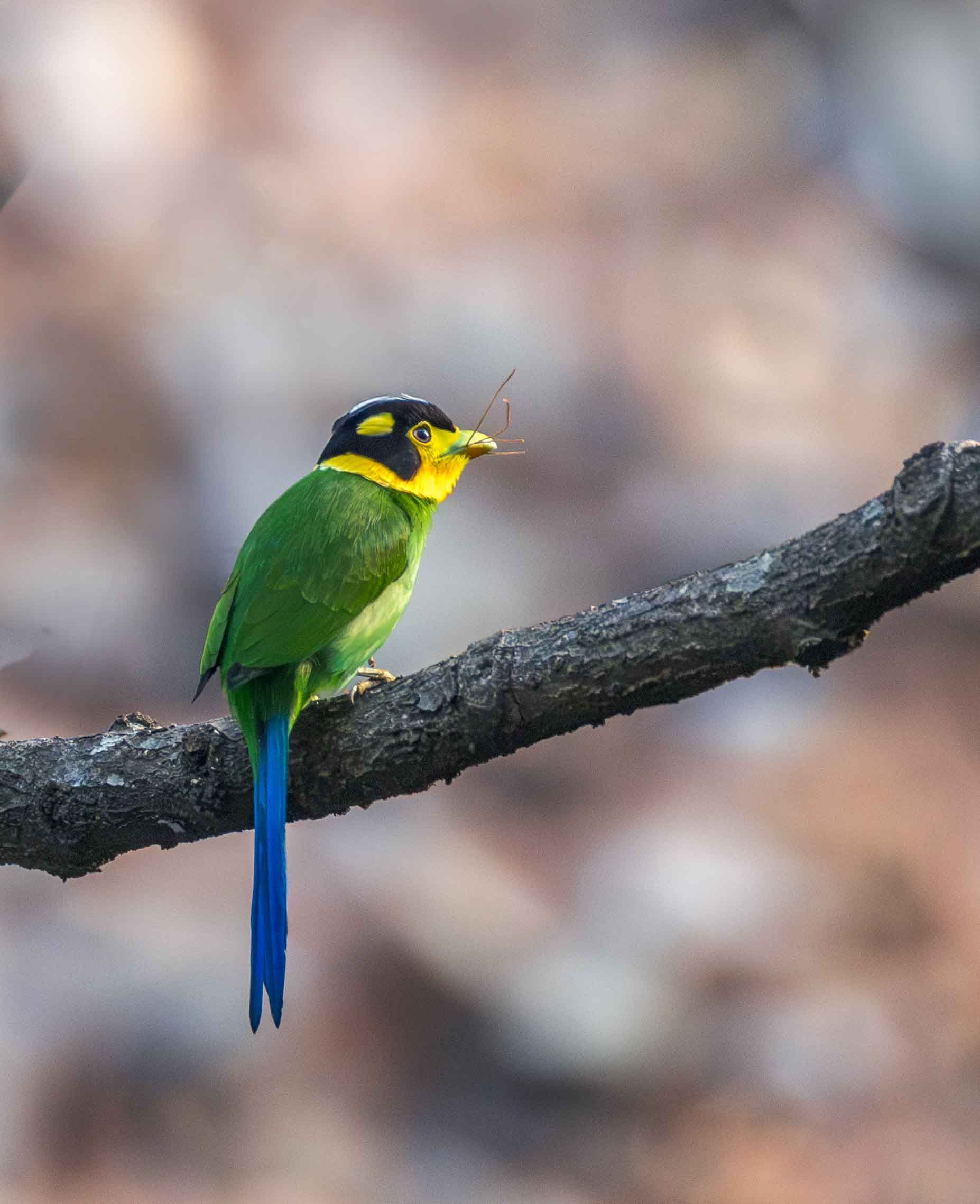
ACCOMMODATION IN CORBETT
Luxury Resorts
- Taj Corbett Resort & Spa
- Aahana Resort
Budget & Mid-Range Options
- Corbett Machaan Resort
- Infinity Resort
- Dhikala Forest Rest House (For overnight stays inside the park!)
ESSENTIAL TRAVEL TIPS
✔ Book safaris in advance (especially for Dhikala).
✔ Carry binoculars and cameras for birdwatching.
✔ Respect wildlife—no loud noises, bright colors, or flash photography.
✖ Do not litter inside the park.
✖ Avoid getting down from the safari vehicle.
WHY CHOOSE WOW FOR YOUR CORBETT WILDLIFE TOUR?
✅ Expert-Led Safaris & Birding Tours
✅ Customized Itineraries for Photographers
✅ Hassle-Free Booking Assistance
🎯 Join Our Exclusive Sattal Birding Tour or Book Your Corbett Safari Today! 🎯
FINAL THOUGHTS
Jim Corbett National Park is more than just a tiger reserve—it is a biodiversity hotspot offering spectacular wildlife and birding experiences. Whether you are an avid photographer, nature lover, or adventure seeker, Corbett is a must-visit destination.
So, when are you planning your next wildlife adventure? Let’s explore the wild together! 🚀

